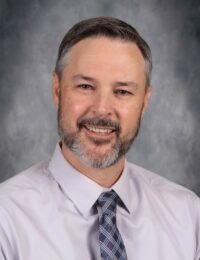PROGRAMS & SERVICES
Special Education is a broad term that describes a wide variety of instructional services that are based on a child’s individual needs. Special education can include a variety of instructional arrangements such as the following:
Resource – Level 1
K-12 special education staff provide specialized instruction, interventions and accommodations to support student participation and progress in the general curriculum. Resource 1 programming is available in all FPS schools to serve students with a wide variety of mild disabilities. Elementary schools primarily utilize a push-in or pull-out model for service delivery while secondary schools primarily utilize a co-teaching model.
Resource – Level 2
K-12 special education staff provide specialized instruction, interventions and accommodations to support student participation and progress in the least restrictive environment based on individual student needs. Resource 2 programming serves students with mild to moderate disabilities. Resource 2 supports are more intensive than those provided in Resource 1 and may include modified curricula to address significant skill deficits in a variety of areas including academics, behavior, social skills, and/or adaptive skills.
Resource – Level 3
K-12 special education staff provide specialized instruction, interventions and accommodations to support student participation and progress in the least restrictive environment based on individual student needs. Resource 3 programming serves students with moderate to severe/profound disabilities. Students in the Resource 3 program typically receive the majority of instruction in a self-contained, special education classroom utilizing an alternative curriculum, while also participating in other general education classroom settings, often with paraeducator support, as deemed appropriate by the IEP team.
Speech-Language Therapy
Students with a speech/language impairment may demonstrate needs in the areas of articulation, language, fluency, and voice. Services may be delivered in the general classroom, resource room, and/or a pull-out setting as referenced by the speech manual.
Hearing Impaired Services
Fremont Public Schools provides a continuum of special education services for students who are deaf or hard of hearing from birth through age 21. Eligible students may receive a variety of services, as determined appropriate by the IEP or IFSP team, including language development, social skill development, speech development, speech reading, auditory management, sign language, and/or deaf culture when appropriate.
Typically, programming for students with hearing loss involves a regular classroom with support from a qualified teacher of the Deaf/Hard of Hearing.
The Metro Regional Program for Children who are Deaf or Hard of Hearing provides FM equipment and routine maintenance. Further information regarding the Metro Regional Team can be found at http://www.nebraskamrp.com
Vision Services
Services may include orientation and mobility, Braille reading and writing, and other survival skills as needed.
Young Adult Program
Services include Post-Secondary transitioning into adult life as an independent self-sufficient individual for students 19-21. This program may involve life skills, vocational training, and social skills.
Adaptive PE
Adapted Physical Education (APE) is specially designed instruction in physical education intended to address the unique needs of individuals. Adaptive PE is a direct service. It is not a related service, which is required only when needed for a child to benefit from a special education service. Physical education, like all other services, must be delivered in the Least Restrictive Environment (LRE). Assessment results and the Present Level of Academic and Functional Performance (PLAAFP) must indicate the need for Adapted Physical Education.
Early Childhood Special Education
The Fremont Public Schools provide programs for children, birth to age five, who have special needs in one or more areas of development. Once a referral is received, a child must be evaluated. Upon receiving the parent’s or guardian’s written permission, a member of the Early Childhood Team, will contact the
family to begin the planning of an assessment to determine the child’s strengths and needs. The assessment plan is based on the concerns expressed by the family. Children may be seen for screening and/or evaluation by a team of professionals, which may include a speech/language pathologist, school
psychologist, occupational therapist, physical therapist, vision specialist and nurse. Assessment may occur within the child’s natural environment (home, daycare, etc.) or at the Early Childhood Development Center. Assessment activities may include observations of the child at play, parent interviews, or standardized tests administered by members of the team. For additional information, see the section of this site entitled, “Early Childhood.”
Extended School Year Services
The purpose of an extended school year is to prevent or slow severe skill regression caused by an interruption of special education services during extended periods of time when school is not in session. The primary criteria in determining a student’s need for ESY services are 1) the likelihood of significant regression of previously learned skills, and 2) delayed recoupment of these skills after service resumes. Documentation of data must be provided to show previous regression/recoupment of skills when school was not in session.
Summer Fun Program
FPS offers the Summer Fun program to Special Education students who have completed kindergarten through age 21. Activities include music, art, physical education, and various field trips.
Occupational/Physical Therapy
Students with fine and/or gross motor needs may require services from the occupational therapist or the physical therapist. Services may be delivered through consultation with the IEP manager and/or classroom teacher or through direct contact with the student.
Post Secondary Transition
Transition services at Fremont Public Schools are a coordinated set of activities for a student with a disability. The services are designed within an outcome-oriented process, which promotes movement from school to post-school activities. Post-school activities may include post-secondary education, vocational training, integrated employment (including supported employment), continuing and adult education, adult services, independent living, or community participation. The transition is based on student needs, taking into account the student’s preferences and interests. It includes instruction, related services, community experiences, development of employment and other post-school adult living objectives, and when appropriate, acquisition of daily living skills and functional vocational evaluation. Transition services may be special education if provided as specially designed instruction, or related services if required to assist a student with a disability to benefit from special education.
